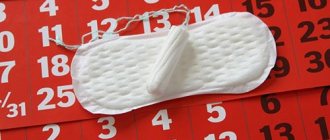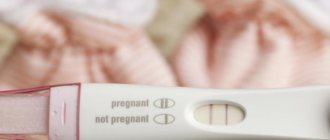Ways to reduce discharge
The duration of critical days varies from 4 to 7 days. Blood loss during this period can reach up to 100 ml.
The cause of loss is the separation of epithelial cells due to capillary damage. In some cases, the volume may exceed the norm - this depends on factors such as blood clotting, hormonal levels of the body, the state of the nervous system, etc.
Blood loss of more than 100 ml is fraught with negative consequences for the body, including anemia and decreased immunity.
If the amount of blood loss is significant or discharge is observed for more than 7 days, then the doctor can diagnose menorrhagia - heavy periods.
Traditional medicine can help reduce heavy periods. An experienced gynecologist can stabilize the menstrual cycle and blood loss during it. Also, with the consent of the doctor, you can try traditional medicine methods that have already proven themselves at home.
https://youtu.be/gWSfpcbp-fk
Treatment of heavy and painful periods with horsetail
One of the menstrual cycle disorders is menorrhagia (hypermenorrhea), manifested by heavy bleeding that lasts more than 7 days. In this case, the total volume of discharge is over 100 ml.
Horsetail will help normalize the menstrual cycle and reduce pain during menstruation. For this, 1 tbsp. Steam a spoonful of herbs with 500 ml of boiling water. Let the mixture sit and strain. Take 1 tbsp. spoon of infusion every 2 hours until bleeding decreases, after which the medicine can be taken 1 tbsp. spoon 3 times a day.
Medicines for heavy menstruation
Medicines are the simplest and most effective way to stop menorrhagia. They can also stabilize the menstrual cycle.
Only a doctor can select the appropriate medications.
1. Contraception
They are able to regulate disrupted hormonal levels and stop the production of the endometrium. However, they will not immediately help with heavy periods.
The doctor may prescribe drugs such as Jess, Marvelon, Janine, Novinet, Yarina and others.
Oral contraceptives are taken as a course, the effect is observed after 1-2 months.
2. Duphaston
A drug that normalizes the menstrual cycle and reduces endometrial production. It is an analogue of progesterone.
3. Ascorutin
Ascorutin is a rutin drug that strengthens the walls of blood vessels.
It can also be used for preventive purposes. Do not use during periods of exacerbation of genitourinary diseases and in the presence of thrombosis. The duration of treatment is three weeks.
4. Calcium gluconate
Can reduce the permeability of blood vessels and improve blood clotting. Apply every 5 hours before meals.
5. Ibuprofen
As a non-steroidal anti-inflammatory drug, it can reduce blood loss during menstruation by 30% and also relieve pain. Should not be taken by persons with stomach diseases.
6. Hemostatic drugs
Tranexam, Dicynon, Etamzilat and Vikasol. When used intravenously, the amount of blood during menstruation decreases quickly - literally in a few minutes. That is why they are considered emergency drugs.
- Tranexam is considered the most modern drug. It also has anti-inflammatory, analgesic and antiallergic properties. It is also effective for uterine bleeding. Should not be used by persons with bleeding disorders, renal failure or thrombosis.
- Dicynon - can stop even heavy periods. Available in the form of tablets and ampoules for injection. Intravenous injections provide the fastest effect. The therapeutic effect will last up to five hours.
- Etamzilate is a hemostatic drug that does not affect coagulation. It acts in 20-30 minutes, the effect lasts up to five hours. It is used by intravenous injection.
- In addition to being a hemostatic agent, Vikasol also has anti-inflammatory properties and can improve blood clotting and replenish vitamin K reserves. It should not be taken by women with blood clotting disorders, thrombosis, or thromboembolism.
7. Vitamins
If you have heavy periods, you should pay attention to vitamin complexes containing calcium and B vitamins. They can also stabilize the functioning of the endocrine and nervous systems and metabolism, which also indirectly affect the functioning of the menstrual cycle.
Before taking medications, be sure to read the list of contraindications specified in the instructions for the drug.
With heavy menstruation, it is necessary to prepare the body for the onset of the next critical days. A few days before the onset of menstruation, you must:
- establish a daily routine and the functioning of the gastrointestinal tract;
- with the doctor’s permission, cancel previously prescribed vasodilator medications;
- start taking medications that strengthen blood vessels;
- start taking vitamins and immunomodulators that help with hematopoiesis, regulating blood viscosity and clotting.
Causes of heavy periods
If a woman notices an unusual amount of discharge, then she needs to go to a gynecologist to find out why she has heavy periods and how to reduce them. This may be associated with both organic and functional pathology. There are many reasons for heavy periods with clots.
Pathology of the uterus
The endometrium is the internal functional uterine layer, which, under the influence of hormonal levels, grows in preparation for the upcoming pregnancy. Some endometrial pathologies caused by hormonal imbalances lead to heavy bleeding during menstruation:
- endometriosis;
- hyperplasia;
- polyposis
In addition to the endometrium, heavy periods or bleeding can also occur with uterine tumors:
- myoma;
- cancer of any part of the organ.
In this case, large clots are discharged from the genital tract, since the uterus cannot fully contract. This happens due to a pathological process in the thickness of the muscle layer.
Coagulation disorder
Congenital or acquired disorders of the coagulation system lead to prolonged and heavy discharge, when a lot of blood is lost during menstruation. At risk are women who suffer from:
- cirrhosis, liver cancer;
- fatty hepatosis;
- long-term infections with intoxication;
- oncological diseases of internal organs and blood;
- congenital deficiency of coagulation factors (hemophilia), but is less common in women than in men;
- thrombocytopenia and thrombocytopathy.
Drugs
There are a number of medications that may pose a risk of heavy periods with large clots. Most often they are taken to improve blood rheology and prevent thrombosis:
- antiplatelet agents – Aspirin, Clopidogrel;
- anticoagulants – Rivaroxaban, Heparin, Fraxiparine;
- indirect anticoagulants – Warfarin.
Taking hormonal drugs containing progesterone can lead to the development of bleeding during menstruation and in the intermenstrual period. Heavy periods are often noted after Duphaston. This is due to insufficient progestogenic effect.
Read also: Causes of heavy periods in teenagers
Medical interventions
Medical interventions mean:
- curettage of the uterus;
- medical abortion;
- traditional abortion or vacuum aspiration;
- hysteroscopy;
- diagnostic curettage;
- laparoscopy.
All these operations are minimally invasive procedures; bleeding develops immediately after them, but after 2 days a small amount of blood is released from the genital tract. From the moment of manipulation, you need to count down the start of your period.
VMC
The use of intrauterine contraceptive methods, or IUDs, is associated with a high risk of developing menometrorrhagia - heavy bleeding during menstruation, often with clots, which leads to iron deficiency anemia. But not all women are susceptible to this complication of uterine contraception. The risk group includes:
- patients with existing cycle disorders;
- chronic inflammation of the pelvic organs in remission;
- underexamination or insufficient data to clarify contraindications.
If a woman develops severe iron deficiency anemia, removal of the intrauterine device and initiation of another method of contraception is indicated.
Pregnancy and childbirth
During pregnancy, especially in the early stages, when the woman is not yet aware of her condition, a miscarriage may occur. In this situation, it is quite difficult to distinguish heavy bleeding during menstruation from pregnancy, especially when there was no delay.
You can suspect the development of a miscarriage and distinguish between menstruation and bleeding during pregnancy by the following signs:
- heavy periods after a delay;
- the development of bleeding was preceded by symptoms of toxicosis - nausea, loss of appetite, etc.;
- spastic contractions of the uterus and pain in the lower abdomen;
- take a pregnancy test - even after a miscarriage, hCG will not immediately return to normal.
Heavy periods after childbirth or cesarean section, if they accompany the early postpartum period, are not a pathology. But such discharge cannot be called menstruation - it is lochia.
Immediately after delivery, the uterus does not immediately acquire its original size; this involution occurs in parallel with the healing of a significant wound surface, which is accompanied by the release of blood, or lochia. They gradually fade away, become transparent and completely disappear no later than 6 weeks after birth.
If a woman continues to breastfeed her baby, then menstruation most likely will not occur during this period. But as soon as the baby begins to pay more attention to complementary foods and the number of feedings decreases, periods will return. Their volume should not be larger than usual and deviation from the norm requires contacting a doctor.
If a woman does not breastfeed, her first period after childbirth may begin as early as 6-10 weeks.
If a woman gave birth by cesarean section, then there should be no more discharge than normal. The method of delivery does not affect the volume of subsequent menstruation.
In teenagers
Heavy periods in adolescents occur as a result of hormonal imbalance during puberty and the formation of childbearing function. The first menstruation, as a rule, is not regular and has an inconsistent amount of blood loss. If the menstrual cycle does not return to normal for more than a year, then it is necessary to see a gynecologist and know how to treat heavy periods.
After 45 years
Heavy periods during menopause or premenopause are not the norm. Often, hormonal disorders lead to endometrial pathology and are a sign of serious diseases. Timely diagnosis will prevent the development of malignant tumors associated with menopause.
Read also: Heavy periods after miscarriage
Folk recipes
Proven folk recipes for heavy periods have proven themselves to be an effective remedy for use at home.
However, you should not rely on alternative medicine. Especially when the discharge during menstruation is accompanied by large clots, dizziness and severe pain.
Another disadvantage of self-treatment is the long wait for the therapeutic effect. But with a slight increase in discharge during menstruation, they are quite capable of helping at home .
- Nettle infusion - pour 200 grams of boiling water over 20 grams of dried nettle leaves, drink 50 grams. infusion every 3 hours.
- Infusion of shepherd's purse - pour dry herb of shepherd's purse into a container with boiling water, leave for 20-30 minutes. A few days before menstruation, take half a glass.
- Barberry infusion - infuse the leaves and berries of the plant in alcohol for two weeks.
- A decoction of yarrow, shepherd's purse and cinquefoil - mix 20-25 grams of dry plant herbs with 10 grams of oak bark, pour in 0.5 liters of boiling water. Place on the stove and bring the mixture to a boil, remove from heat. The decoction is taken 40 minutes after preparation, one tablespoon half an hour before meals, 2 times a day.
- Infusion of chamomile, valerian and mint. Pour boiling water over the mixture of herbs, strain after 30 minutes and take orally.
- Peppermint decoction - pour a tablespoon of the herb into 200 ml of boiling water, bring to a boil and quickly remove from the stove. Take 20-30 minutes before meals 3 times a day, 1/3 of the prepared broth.
- Lilac decoction - pour a teaspoon of lilac seeds into 200 ml of boiling water, leave for 15-20 minutes, then boil for 5-10 minutes over low heat.
- Raspberry infusion - mix dry raspberry leaves and mint, brew with boiling water and cool. Take 3 times a day a few days before the start of your period.
- Cinnamon decoction - add 1 tablespoon of cinnamon powder to warm water, take every half hour.
- Infusion of corn silk - pour 3 tablespoons of the herb into a liter of boiling water, leave for 2 days in the refrigerator and take a tablespoon before meals.
Tablets and drugs
The use of pharmaceutical drugs for heavy discharge is the main method of treating menorrhagia. Prescription of drugs is carried out after the necessary examination and testing. In general, all medications can be divided into several groups:
- painkillers - necessary if menstruation is accompanied by severe pain;
- hormonal - help normalize heavy discharge in case of hormonal imbalance. For example, treatment with such drugs has a positive effect on adenomyosis and endometriosis;
- hemostatic - these include Tranexam and Dicynon. These drugs are administered intravenously in case of heavy discharge during menstruation with clots, and act instantly;
- drugs that increase blood clotting - such drugs are taken for several days. They are prescribed for heavy scarlet bleeding without clots. These include tincture of water pepper and Vikasol.
Tablets you can use
Depending on the woman’s condition, the type of discharge and the severity of the situation, the doctor chooses an effective form of the drug. For long-term treatment of excessive discharge, tablets and suppositories are suitable. If help is needed urgently, the main methods are intravenous administration and injections.
Proper nutrition
Proper nutrition is important when dealing with heavy periods. It is necessary to replenish your reserves of nutrients and not eat junk food. Recommended for use:
- greenery;
- vegetables - especially beets, carrots;
- dried fruits and nuts;
- low-fat cottage cheese and cheese;
- pineapples, cherries, bananas, citrus fruits;
- legumes, brewer's yeast;
- chocolate and cocoa;
- whole grains;
- cumin and cinnamon.
It is advisable to reduce the consumption of fermented milk drinks, salt and sugar in the diet. Fried, fatty, spicy, sugar, caffeine, canned foods and alcohol should be completely excluded.
Meals should be fractional, it is also important to maintain water balance in the body.
How to relieve pain during menstruation for young girls?
In gynecology, it is customary to divide painful periods into primary, when a girl has never had painless periods from the very beginning of menstruation, and secondary, when severe pain during menstruation occurs in women after 30 years of age against the background of various infectious and inflammatory diseases of the female genital organs, hormonal imbalances, after surgical interventions, etc.
According to many women and doctors, primary algomenorrhea (pain during menstruation) can go away on its own after a woman gives birth to a child, then the uterus will contract less painfully during menstruation. But, if this does not happen, moreover, if a young woman cannot become pregnant and she experiences a whole range of symptoms both before menstruation - premenstrual syndrome, and during menstruation, it is imperative to undergo a comprehensive examination not only from a gynecologist, but also from such specialists such as gastroenterologist, phthisiatrician-gynecologist, neurologist, endocrinologist, osteopath, psychotherapist.
Since the main causes of painful periods in girls can be general systemic diseases, such as connective tissue dysplasia, expressed in the development of curvature of the spine, dysfunction of the gastrointestinal tract, frequent dislocations, varicose veins of the legs and pelvic organs. Also, the cause of primary algomenorrhea can be genital tuberculosis, leading to abnormal development of the genital organs, underdevelopment of the mammary glands, uterus and uterine appendages, which is the cause of persistent infertility. Various diseases of the nervous system, mental disorders, emotional instability in girls can be a consequence of the same genital tuberculosis or be an independent disorder that has hereditary or congenital roots.
Considering the above, you should first exclude these pathologies, and then, based on the establishment or exclusion of these diagnoses, decide on methods for relieving pain during menstruation.
Sports lifestyle
Heavy, exhausting physical exercise can be harmful during heavy periods, but some exercises can alleviate the condition.
Moderate yoga and stretching will help reduce blood loss during menstruation. It’s better to start with breathing exercises and then move on to the following exercises:
- sitting on the floor, bend your knees and bring your feet together;
- standing on your knees, lower your buttocks onto your heels and lean forward a little, touching the floor with your forehead;
- get on your knees and elbows, raise your pelvis;
- lying on your back, press your buttocks against the wall and stretch your legs up.
Acupressure is also effective. Traditionally, massage of the point above the lip is considered a method against pain and heavy menstrual flow.
Cause
First, you need to determine the cause of menorrhagia. You may think your periods are heavy, but in fact your body is working normally. If your period lasts from 2 to 7 days, and the amount of discharge in total is 50-150 ml. - This is completely normal discharge.
If the cycle lasts more than a week or the abundance of menstruation exceeds 150 ml, then these may be the first symptoms of such serious diseases as uterine fibroids, tumor, lack of thyroid hormone production, inflammation of the ovaries and others. In this case, you should immediately consult a doctor.
Doctors' opinion
As a rule, when you contact a gynecologist with a question about heavy periods, the doctor prescribes emergency medications to help reduce blood loss, and then conducts an examination. It is necessary to establish the cause of menorrhagia and treat it specifically. Diagnosis of the disease and its successful treatment will help stabilize the menstrual cycle.
It is worth taking care of your health. The need to change the pad every half hour and prolonged critical days is a reason to immediately contact a specialist.
Uncontrolled use of hemostatic drugs by a woman does not cure menorrhagia, but only eliminates the symptom.
Will traditional medicine help?
In some cases, treatment can be combined with traditional medicine, after consulting with your doctor.
For heavy periods, the following remedies are effective:
- Infusion from shepherd's purse.
Preparation: pour two or three tablespoons of herbs into a glass of boiling water. - A decoction of a mixture of yarrow and burnet herbs.
A tablespoon of raw material should be brewed with a glass of boiling water. Next, the decoction is kept in a water bath for at least 15 minutes and taken for 14 days, starting around the middle of the menstrual cycle.
How to stop bleeding during menstruation
A distinctive sign of the pathological condition is atypically heavy discharge. If your periods were previously uneventful, but at the moment they are too intense, you should be wary. If the volume of discharge does not decrease during the day and is about 100 ml, you should consult a doctor. Other features are also taken into account:
- deterioration of health, weakness, dizziness, severe pain in the lower abdomen;
- constant or increasing intensity of discharge;
- Pads or tampons have to be changed more than once an hour.
Sometimes women are looking for a way to stop menstruation at home, not only with heavy discharge. Athletes and ballerinas resort to such techniques on the eve of important competitions. Some people want to delay the onset of “these days” or speed up their completion if a wedding, a spouse’s arrival from a business trip, or some kind of examination or operation is expected. (During menstruation, blood loss is higher than at other times of life).
Therefore, women use ways to quickly stop their periods or increase the length of their cycle. Medicine has drugs that can do this. There are also corresponding folk remedies.
Those who decide to change the length of their cycle on their own need to remember: such interference with hormonal levels does not go unnoticed and can lead to serious consequences. From cycle failure to infertility.
Some medications have the ability to reduce the intensity of bleeding and accelerate blood clotting. They can be used at home, but it is better to consult your doctor first: each drug has its own contraindications. There are the following pills that stop menstruation.
- "Etamzilat." The drug is used not only to stop menstrual bleeding. The mechanism of action is based on stimulation of platelet formation and their release from the bone marrow. The maximum effect develops three hours after ingestion. If you have a tendency to have heavy menstruation, then you can start taking one or two tablets three times a day five days before the expected first day. Continue the course until the fifth day of the new cycle. In cases where menstruation does not stop, the doctor may prescribe Etamzilat injections into the muscle or intravenously, or a course of tablets from the day of treatment until menstruation stops.
- "Vikasol". Vitamin K is one of the blood clotting factors, and Vikasol is its synthetic analogue. Increases blood clotting due to enhanced synthesis of specific coagulation proteins. Take the drug orally, one or two tablets per day for three to four days. After this, a break is required. Longer use can lead to hemolytic anemia, an increase in bilirubin in the blood.
- "Tranexam." The drug inhibits fibrinolysis - does not allow fibrin filaments to disintegrate, which form a framework for a blood clot at the site of bleeding. The maximum concentration in the blood is reached in three hours, and the effect lasts for 17 hours. Tablets are available in dosages of 250 and 500 mg. To stop menstruation, 1000-1500 mg is prescribed three to four times a day. Duration of treatment is three to four days.
- Combined contraceptives (COCs). You can stop heavy periods using COCs. This method is often used in teenagers. Hormones in the drug lead to hemostasis within 12-24 hours. Birth control pills are taken four to six times a day at regular intervals. When the bleeding stops, the dose is reduced by one tablet daily. Having reached one tablet per day, continue to use the medicine until day 21 of the cycle. After this, take a break for seven days, and then it is recommended to start taking COCs again. If hormonal hemostasis is ineffective, then a surgical method is resorted to.
- Non-steroidal drugs. "Analgin", "Ibuprofen", in addition to the analgesic effect, can slightly reduce bleeding during menstruation. For some women, they help reduce the duration of bleeding by several days.
Sometimes medications are used that prevent the onset of menstruation or prevent it from being heavy.
- COCs. The mechanism of action of oral contraceptives is based on blocking ovulation. The tablets are taken in a course of 21 days, after which they take a break for seven days. During it, menstrual-like bleeding occurs. If you do not take a break, but immediately start the next pack of tablets, then bleeding will not start. This effect is used in the treatment of certain gynecological pathologies. Even regular use of COCs in the recommended dosage leads to a decrease in blood loss and a reduction in the duration of prolonged periods.
- "Duphaston". Progestins are effective in stopping heavy bleeding. In an acute situation, they are used one 10 mg tablet once a day for a course of ten days. To prevent heavy periods, they are taken in a cycle of 21 days with a break of a week. The volume of menstruation decreases by 15-30%.
- "Mirena". The intrauterine hormonal system will help stop menstruation during menopause. The action of the progestin component spreads locally, which reduces bleeding to a spotting three-day discharge. This remedy is also effective in the presence of fibroids, endometrial hyperplasia and endometriosis.
- Gonadoliberins. If the cause of a large amount of menstruation is endometriosis, then in preparation for surgical treatment a drug can be used that blocks ovarian function and causes a temporary, reversible menopause. In this case, periods will not disappear forever, but only for the duration of treatment. Use "Goserelin", "Buserelin".
Before stopping your period, if it takes a long time, you should definitely visit a doctor. Sometimes heavy menstruation is the first symptom of a serious pathology.
Folk remedies
If the bleeding is not critical, then you can stop your period with folk remedies. The following herbs have a hemostatic effect:
- nettle;
- water pepper;
- parsley;
- yarrow.
Medicinal products can be prepared using the following recipes.
- Nettle decoction. Mix four tablespoons of dry nettle and 500 ml of boiling water, leave for five minutes and wrap for a couple of hours. Then strain. The resulting decoction is divided into three parts and drunk throughout the day. The course begins two to three days before the expected menstruation.
- Parsley decoction. Can be obtained from 40 g of fresh leaves, brewed with 250 ml of boiling water. Take half a glass before meals twice a day. But use with caution for gallbladder pathology and kidney disease.
- Water pepper extract. Pharmacies sell a ready-made tincture, which is easier to use than preparing it yourself. For the course of treatment, you need to take 20-30 drops three times a day before meals. The drug helps stop spotting periods that have dragged on for several days.
- Yarrow extract. The pharmacy chain has an alcohol tincture of yarrow, which is taken 40 drops three times a day. You can independently prepare a water infusion from 15 g of herbs and 200 ml of boiling water. Keep the mixture in a water bath for 10-15 minutes, then gradually cool. Store in the refrigerator, using a tablespoon three to four times a day.
Vitamin C has a hemostatic effect by strengthening the walls of microvessels. It makes them more elastic and prevents fragility. To stop bleeding, according to reviews, you can eat one fresh lemon. To soften the sour taste, citrus is dipped in sugar, honey or jam. But this method cannot be called harmless. With gastritis, thin tooth enamel, it can cause harm.
The causes of heavy menstruation are most often associated with hormonal imbalance. Therefore, neither spells nor herbs can stop bleeding during menstruation that lasts longer than expected. Folk remedies can only help as a complement to treatment prescribed by a doctor, or in mild cases. In order for the situation to be reparable, if unpleasant symptoms appear, you need to consult a doctor and not self-medicate.
Some women consult a gynecologist with complaints of excessively heavy periods, which may be accompanied by severe pain or not cause discomfort at all. There are many reasons for excessive bleeding - from hidden but easily treatable diseases to serious pathological processes. These include:
- pathological processes in the uterine cavity;
- childbirth, abortion;
- intrauterine device;
- hormonal disbalance;
- hypovitaminosis, diets;
- taking medications.
Heavy bloody periods are an accompanying symptom of myomatosis, a lesion of the uterus in which the thickness of the endometrium and the shape of the uterus as a whole changes. Endometriosis is another disease that affects the uterus and causes heavy discharge during the menstrual period. With the disease, the endometrium grows to such an extent that it can spread beyond the uterus - to the walls of the intestines or other neighboring organs. Endometriosis is caused by excess estrogen. A specific feature of the disease is bleeding in the middle of the cycle.
The presence of many clots during menstruation can be caused by a recurved or saddle-shaped uterus. The bend of the uterus occurs when the outflow of blood is disrupted, due to which it has time to coagulate. The discharge will be very dark, with an unpleasant odor and numerous clots. Their excessive amount should worry the patient during menopause. The sudden, causeless appearance of clots in women after 50 years of age indicates an oncological disease.
Menstruation may be accompanied by heavy discharge after childbirth, depending on the course of labor and the method of delivery. This manifestation also worries women who breastfeed their baby for more than 1.5-2 years. During lactation, menstruation is usually absent, and with the completion of breastfeeding, the cycle is restored. In the first 1-2 months after finishing breastfeeding, these women may encounter problems with changes in the amount of menstrual flow.
Changes in the amount of menstrual blood released are also observed in women with an IUD (intrauterine device) installed. Some pharmaceutical drugs, such as Aspirin, affect the duration of the cycle and the amount of blood loss. Blood thinners for thrombosis have a similar effect.
Ways to stop bleeding during menstruation
There are ways to help normalize your cycle. Let's look at how to stop long periods:
- Taking oral contraceptives affects the hormonal system and the cycle itself. Their use leads to a reduction in the time and volume of vaginal bleeding.
- Hormonal contraceptives can make your menstrual cycle more accurate. External replenishment of hormones, combined with those produced by the body, will lead to periods becoming less abundant and shorter.
- Physical exercise and regular intimate contact have the most beneficial effect on the duration and abundance of menstruation.
- Proper nutrition is also important. If you force yourself to follow a strict diet, your discharge may last longer and be stronger.
- There are some folk remedies that can speed up or delay the onset of menstruation and make them less strong.
- To prevent strong, long periods, it is appropriate to use vitamin E, which has a beneficial effect on the ovaries.
Women often take hemostatic pills during menstruation, which are designed to affect blood clotting, or hormonal drugs that normalize the cycle. If you want to stop long periods, it is better to consult your doctor. Medicines often affect the functioning of the ovaries, leading to hormonal imbalance, and there is also a possible risk of thrombosis. Let's look at how to quickly stop your period if it's been going on for a long time.
Additional drugs
So, how to stop bleeding during menstruation? Most often, a variety of drugs and medications are used for this. They can be produced in the form of capsules and tablets for oral administration, as well as in the form of injections and injections. The latter have a faster effect on the body.
Among the drugs that help stop heavy bleeding are the following: “Dicinon”, “Vikasol”, “Tranexam” and so on. All of these products are not suitable for regular use. They should be used only as needed. Doctors strongly do not recommend using the medications described above in the first days of the menstrual cycle.
To avoid the question of how to stop bleeding during menstruation, the correction must be carried out in advance. Currently, many representatives of the fairer sex with heavy and painful menstruation are prescribed hormonal drugs. It is worth noting that most of them have a contraceptive effect. That is why, if you are planning a pregnancy, this method of correction will not suit you.
Hormonal drugs include the following: “Janine”, “Novinet”, “Logest”, “Duphaston”, “Nonovlon” and so on. The regimen for taking this or that drug is described in detail in the instructions. Before using such medications, you should undergo a series of studies and consult a specialist.
Speaking about how to stop bleeding during menstruation, it should be said that there are a number of products that can be purchased at pharmacies without a doctor’s prescription. They are not a medicine and can be used without prescription. Let's highlight the most common drugs:
- "Ascorutin" - contains a large amount of vitamin C and other substances that have a positive effect on the walls of blood vessels. They are strengthened and, as a result, blood loss is reduced. It is worth saying that the effect becomes noticeable only with regular use of the composition.
- “Water pepper” is a tincture containing alcohol. Contraindicated for people suffering from alcohol addiction and vehicle drivers. It acts quite quickly and almost never causes side effects.
- “Calcium gluconate” is a dietary supplement that affects the condition of blood vessels. The product must be taken regularly for a long time. Remember that the drug is contraindicated for people with kidney or gallstones.
In some cases, the additional remedies described above may not help. Most often this happens with various diseases and pathologies of the inner lining of the uterus.
Compliance with the regime
How to stop bleeding during menstruation at home? If you do not want to see a doctor and take medications, then you can cope with the pathology by simply following the regimen.
When heavy periods begin, you should not subject your body to strong physical exertion. If possible, take a short vacation or an extra weekend. Sit on the sofa in front of the TV and watch your favorite shows and movies. Relax and unwind. Do things you love. Be sure to drink more fluids; at the moment, your body needs to replenish lost moisture. Avoid coffee, chocolate, alcoholic drinks and all foods that may increase bleeding.
How should it be normal?
The average length of the menstrual cycle is 28 days, but variations from 21 to 35 days are allowed. The period of menstruation for most women is four to five days, but bleeding that lasts three days or extended to seven days is not considered a pathology. It is important that this interval is the same every month.
Menstrual discharge is a mixture of separated endometrium, cervical mucus, and vaginal flora, which are washed away with blood. This is the final stage of changes in the endometrium, which was preparing for pregnancy.
Hormonal regulation of menstruation involves a decrease in progesterone levels, which leads to spasm and emptiness of endometrial vessels. Blood accumulates between it and the wall of the uterus and gradually peels off the mucous membrane. It cannot withstand the pressure and is washed away with blood.
During menstrual bleeding, up to 100 ml of blood is lost. In the first day or two, the discharge is more intense, then it gradually decreases. The loss of more blood can be noticed by the number of pads that have to be changed more often than every two to three hours.










